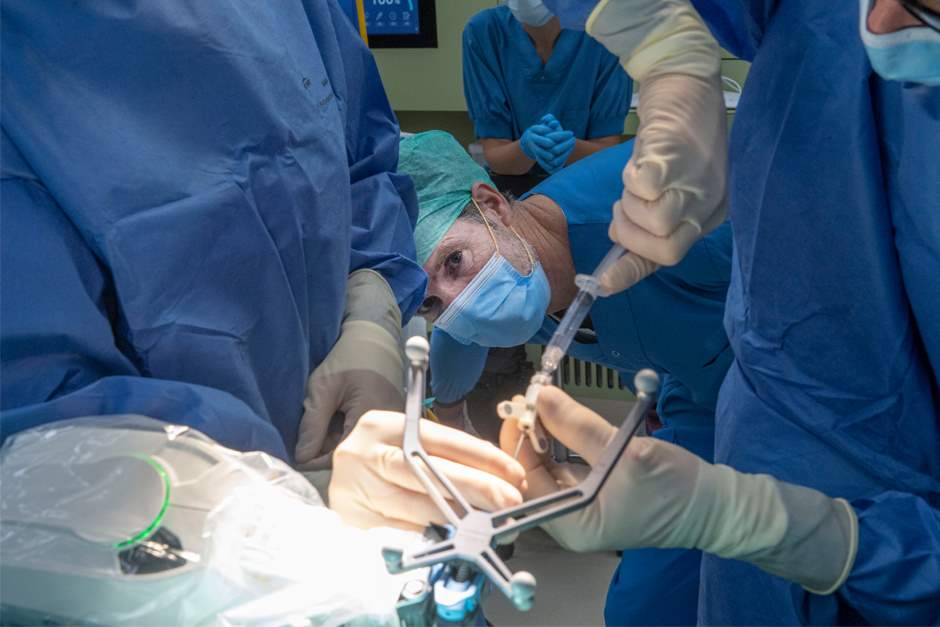Governance: our impact on fair and reliable care
At UMC Utrecht we want to be open and clear about how we run our organization. And how for instance through our scientific research, we manage to provide the best and safest patient care Patients from our patient panel indicate in our questionnaire that they cannot properly assess whether UMC Utrecht is open and clear about this. Most patients indicate that they do find this important. Here are our answers to the most important questions regarding this topic.

As an academic medical center, scientific research is one of our core tasks. Results from our research are converted into new treatments so that we can offer our patients the best possible care.
Research on treatments to cure diseases
A new treatment that we are studying, is for example the use of the body’s own repair processes to cure diseases. At the same time, we are working on new technologies to treat people with cancer faster and more effectively.
Research on targeted treatments
We are also studying studying tailored treatments for arteriosclerosis. It will enable us to treat patients in a very targeted way and avoid treatments that are not (sufficiently) effective. This will prevent unnecessary side effects for patients.
What are you doing to shorten waiting times?
We want everyone to receive the right care as quickly as possible. We are therefore actively focusing on shortening waiting times. In the past year we have achieved good results.
Optimal use of surgery capacity: operating more people faster
With the growing demand for healthcare, it is more important than ever to make smart use of our surgery capacity. Together with our colleagues, we looked at where and how we could improve. In 2024 we organized processes in a smarter way and made even better use of digital opportunities. As a result, fewer operations are now being canceled, and waiting times are shorter. This means we can operate more patients faster.
The average waiting time for an operation at UMC Utrecht and at the Wilhelmine Children’s Hospital decreased by more than 30%
‘No-show’ prediction by AI: more patients are helped faster
Each year about 33,000 no-shows for outpatient appointments are recorded. In 2024 we started to use technology (artificial intelligence or AI) tthat calculates the risk of a no-show. For example with information on the traveling distance to UMC Utrecht and the hour of the appointment. If there is a high risk of ‘no-show, we’ll give the patient a call a few days prior to the appointment.
The call service appears to prevent about 15 to 25% of all no-shows
In 2025 we are hoping to see between 4,000 and 5,000 less no-shows. In the freed-up slots we try to schedule appointments for patients who are on the waiting list. We have been able to fill up about 45% of the appointments that are canceled or rescheduled. This was shown in a first survey. It enables us to help more patients faster.
Does UMC Utrecht share results of treatments so that patients can know where they will get the best care?
As a university medical center, we joined the NFU which is the umbrella organization of university medical centers in the Netherlands . We are therefore involved in the Transparency Calendar and quality registrations. In it, we provide a variety of data on the quality of our healthcare, such as waiting times, number of patients, and figures regarding the duration of hospital stays and patient mortality. Patients can find this information for instance on www.zorginzicht.nl and www.ziekenhuischeck.nl .
